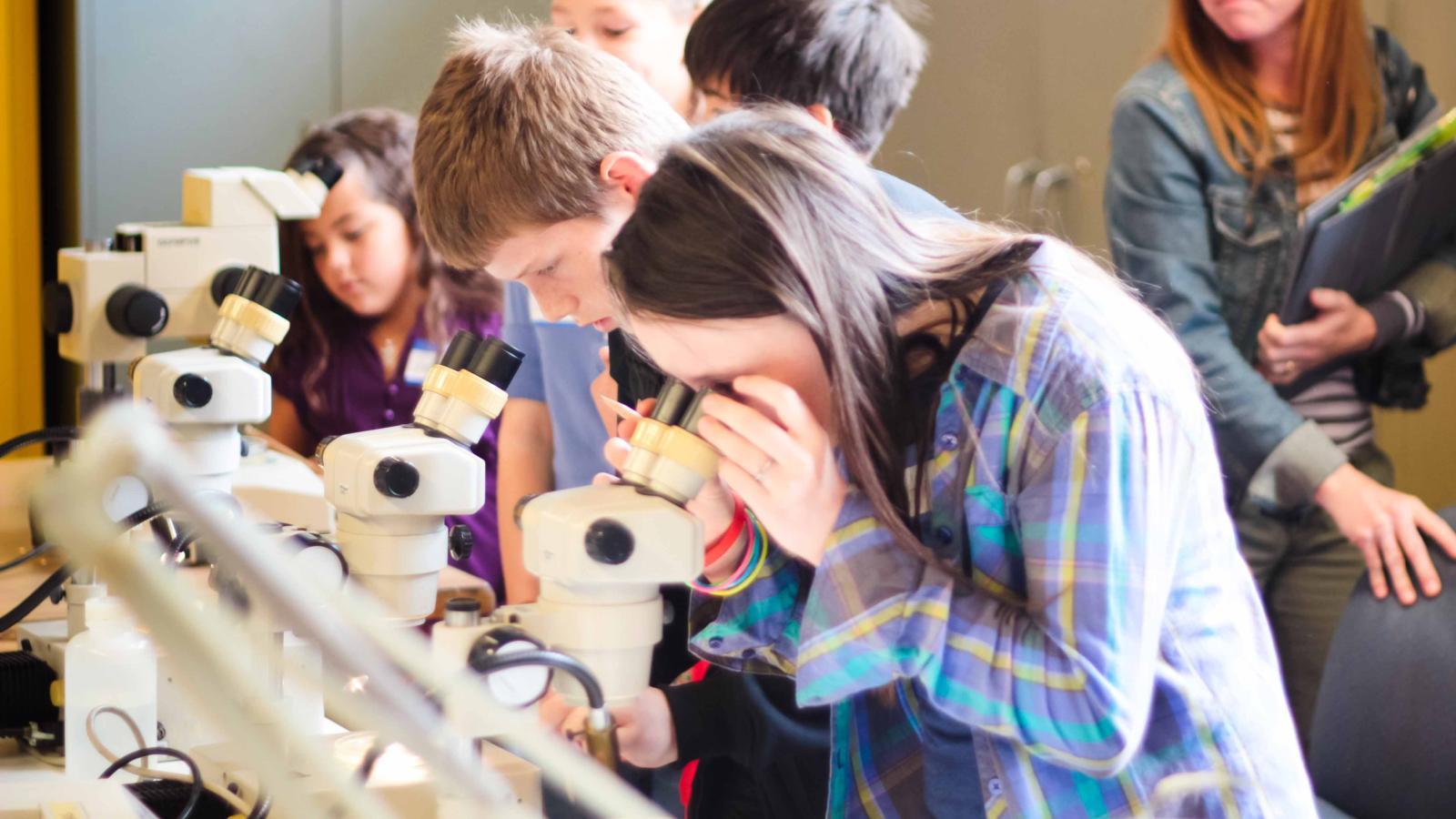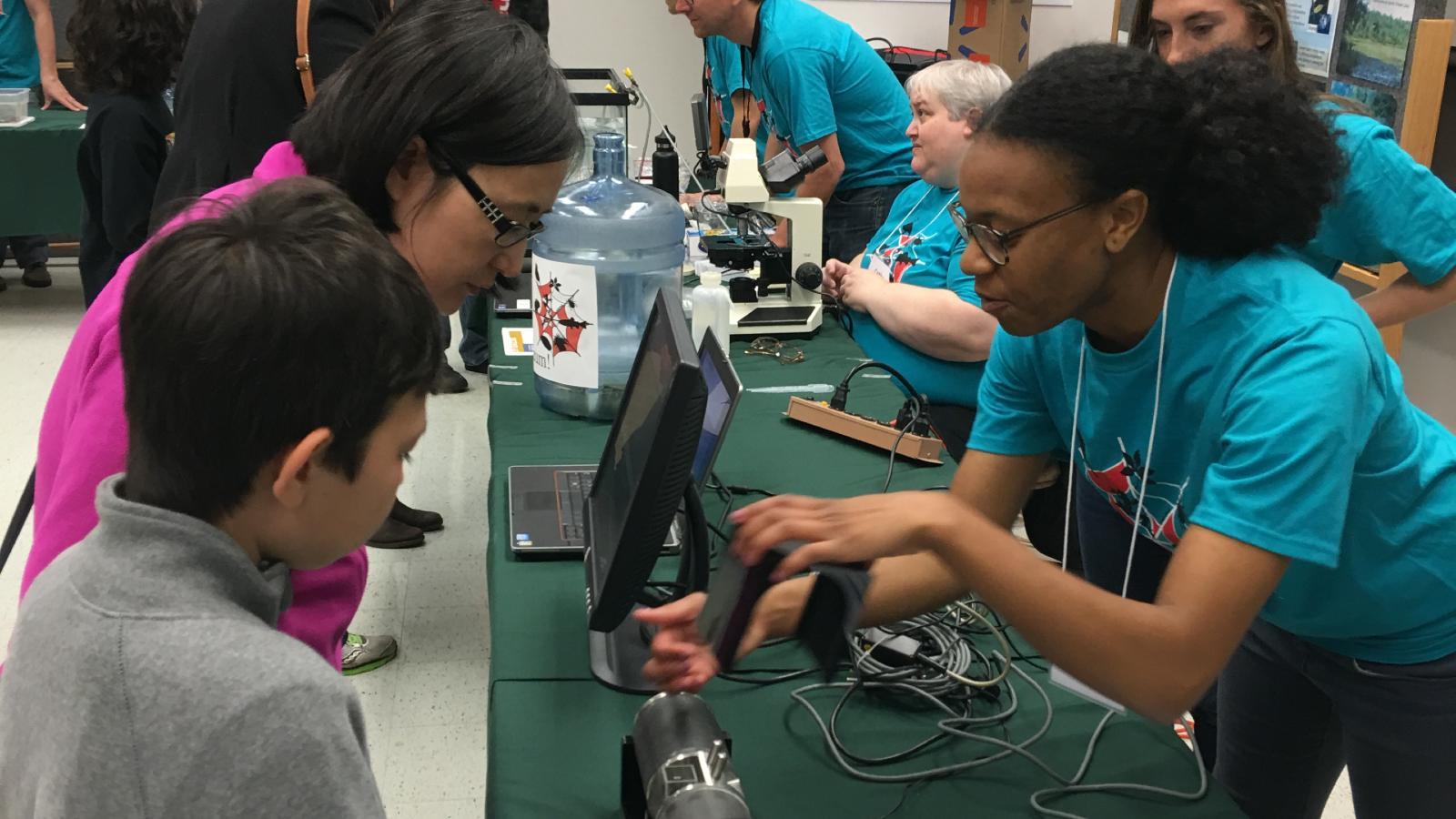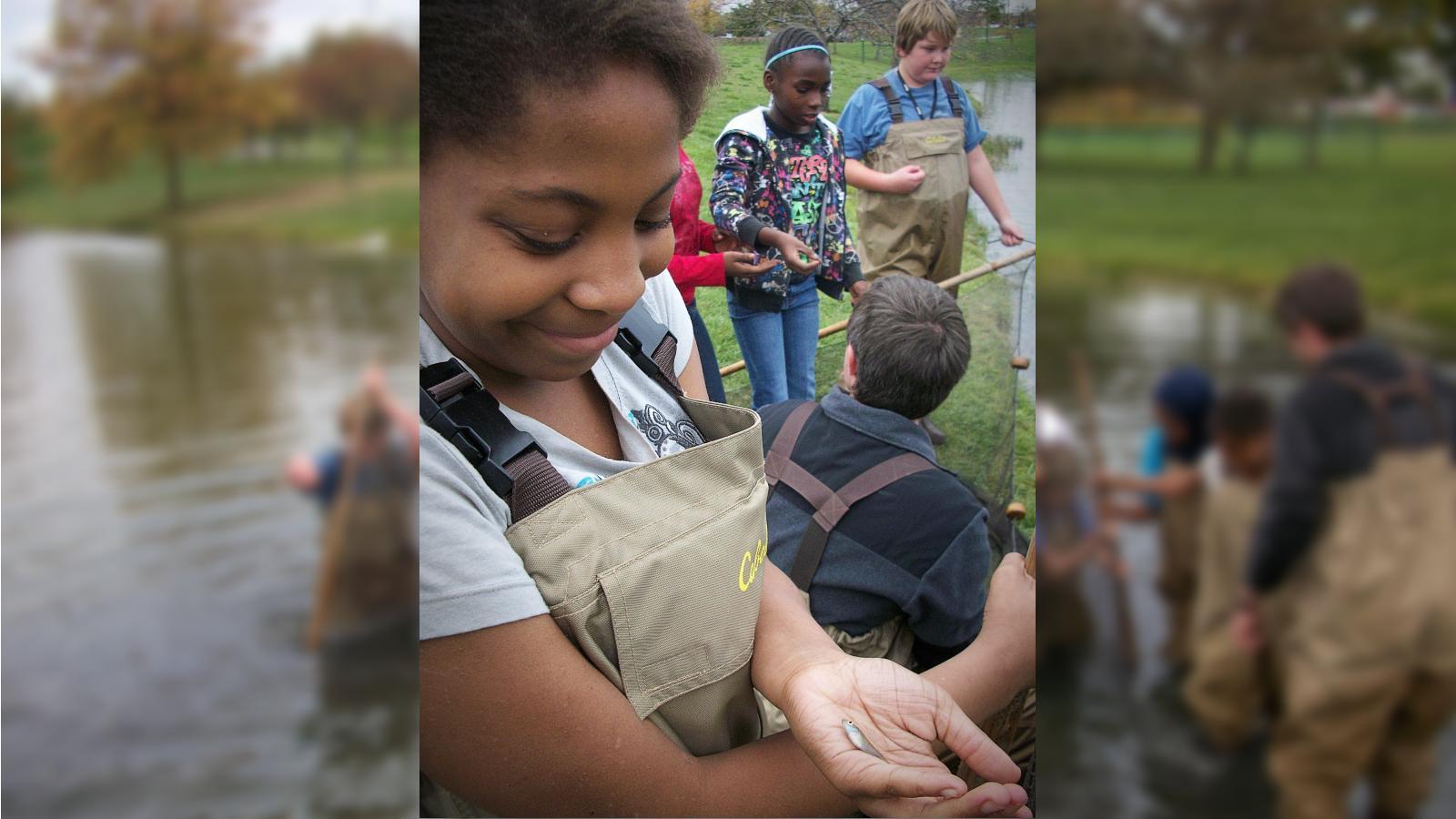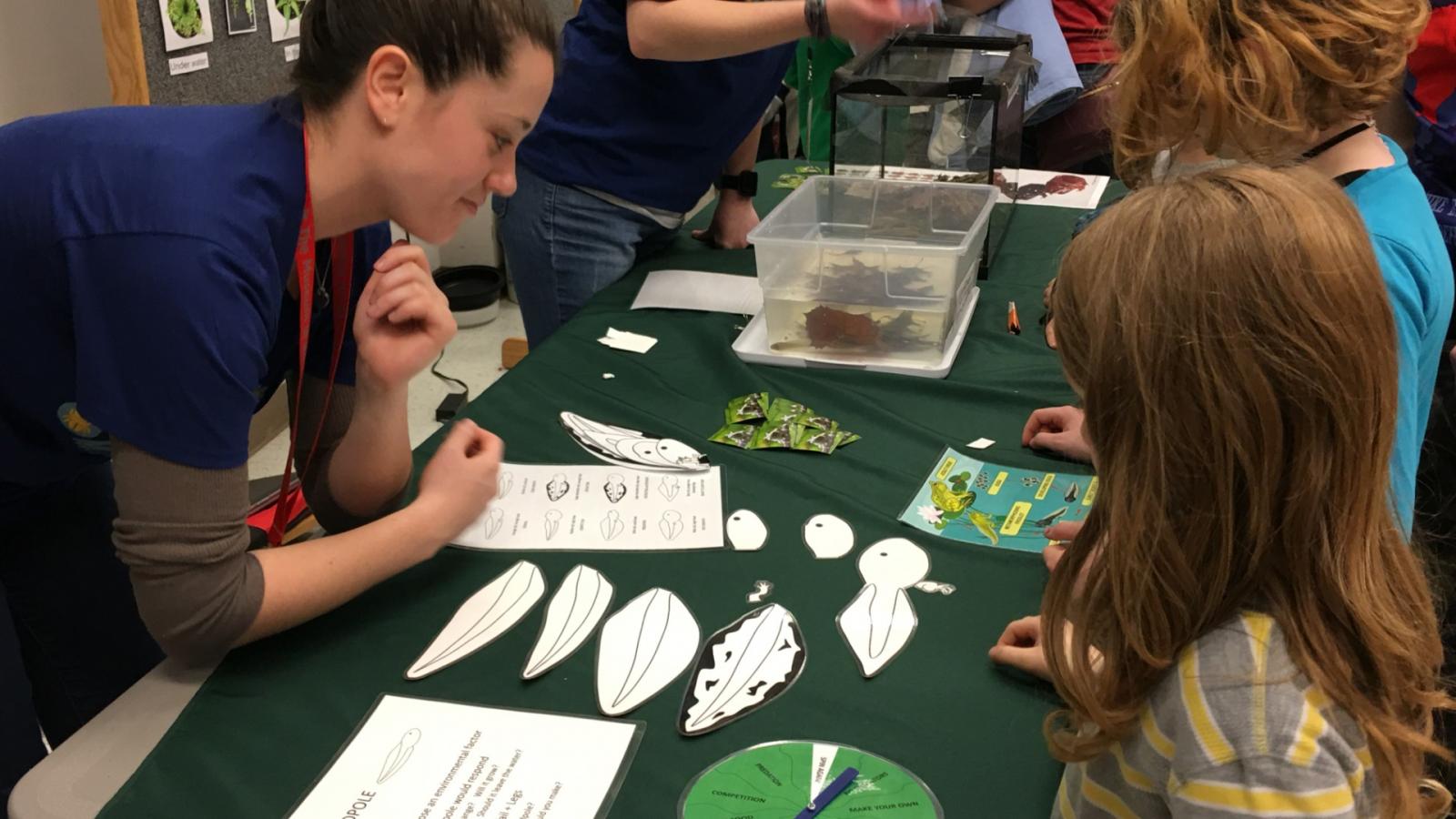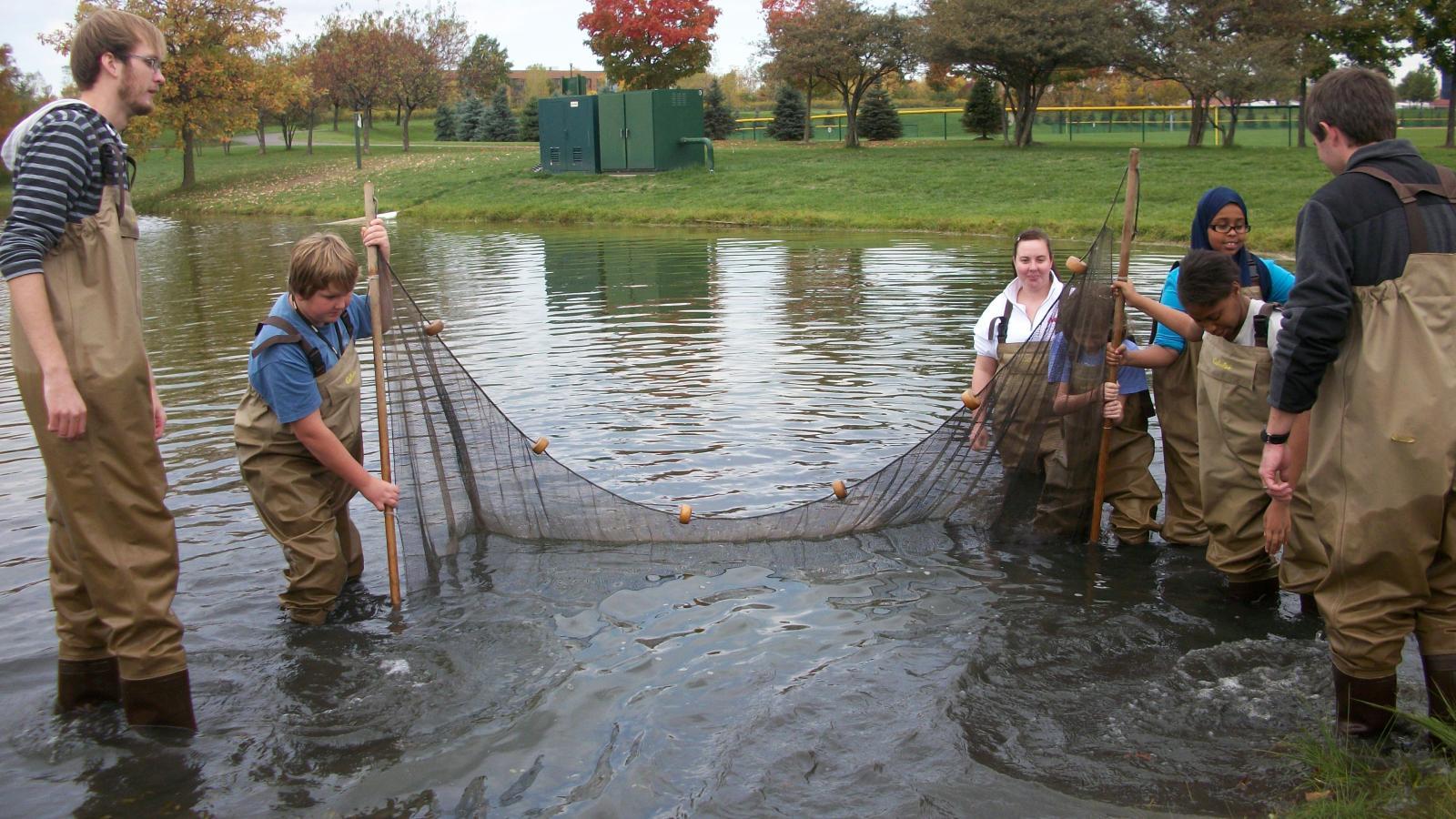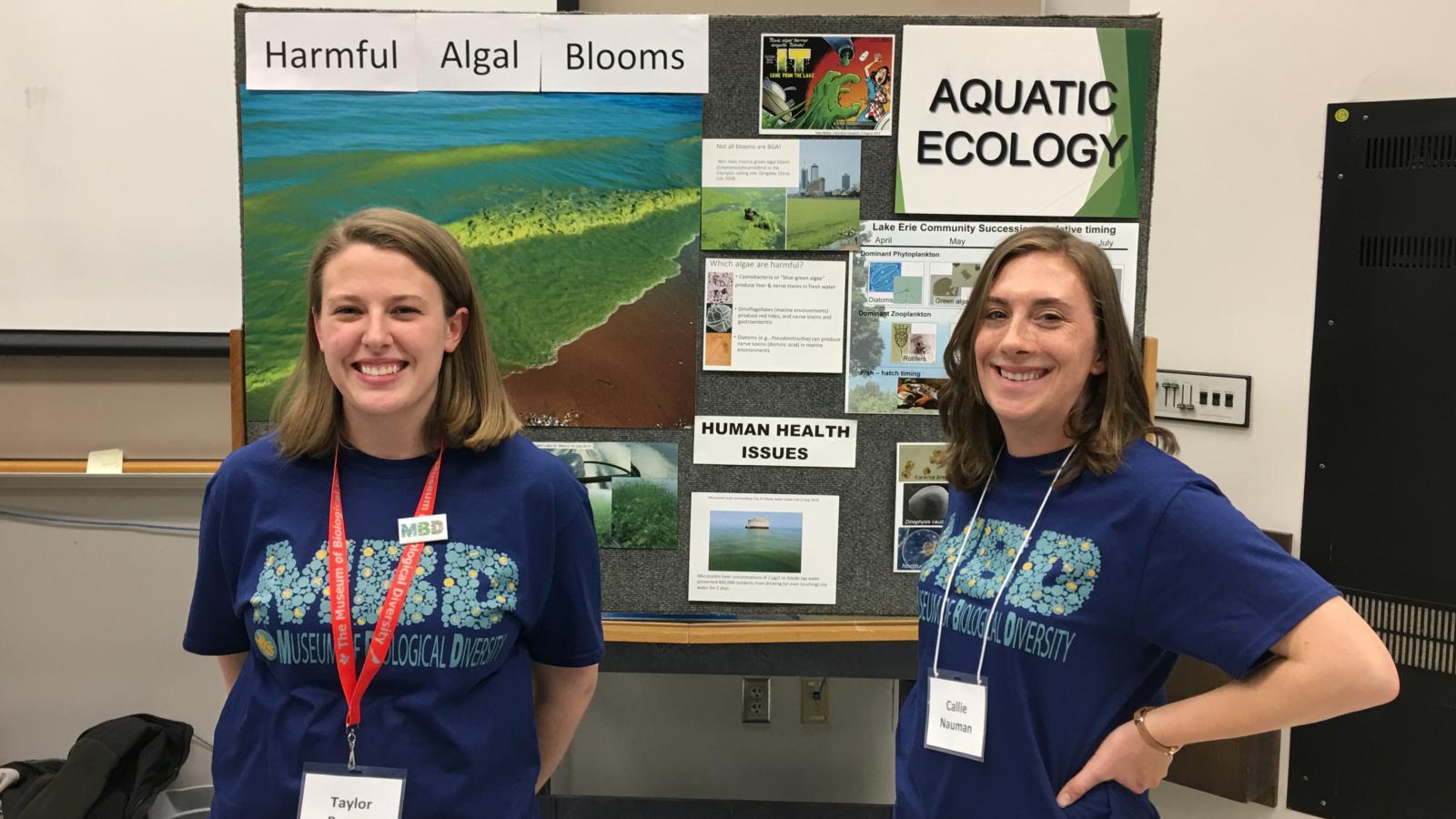Outreach
Outreach is one of the guiding principles of the Aquatic Ecology Laboratory since it paves the way for stewardship. We don't believe science can be complete without effectively sharing findings, so we work hard to share ours with all parts of our community. See below for information on various types of community engagement we've been part of in the past, and feel free to reach out directly if there are any events in which you think we'd like to participate.
K-12 Outreach
For our K-12 audiences, we discuss topics like climate change, invasive species, and eutrophication and provide examples of how these stressors impact our lives. We also talk about the types of aquatic life that the students can find in their own backyard, but we don't stop with the classroom. We put students in waders, knee-deep in sediment with seines. We get them up close with microscopes to experience the aquatic biota that can't be seen with the naked eye. We even show off some of our sampling equipment and let them be the aquatic ecologist.
Examples of outreach for K-12 audiences:
- Educational programs for local school groups at the AEL
- Guest lectures at OSU and local schools
- Hosting Women in Science Day
- High school intern program
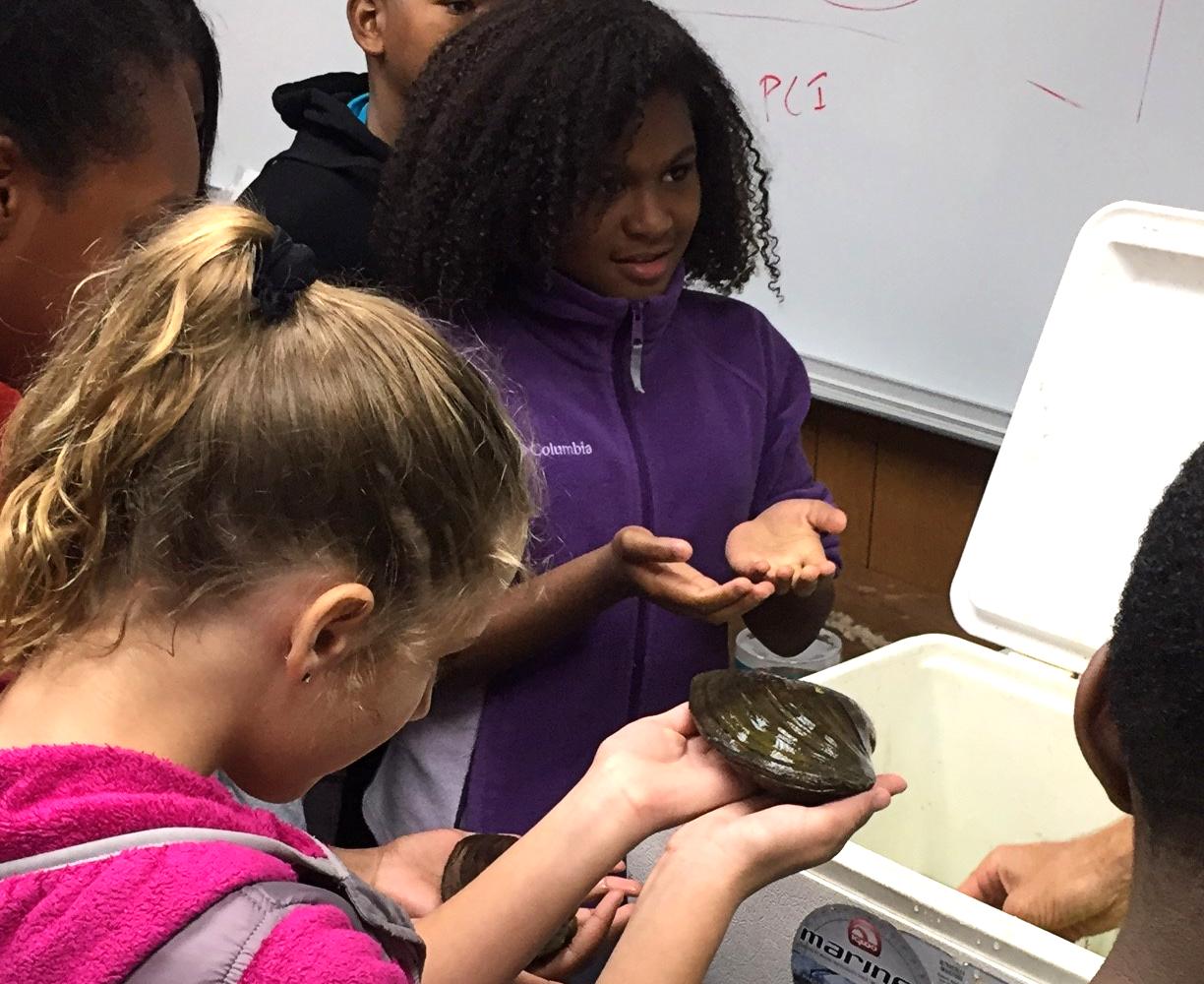
Outreach beyond K-12
For undergraduates, non-science majors, and the public, we teach about the scientific process, provide guest lectures, organize workshops, and give seminars.
Examples of outreach audiences beyond K-12:
- Participation in the annual Museum of Biological Diversity Open House
- Seminars and workshops for the university community
- Undergraduate research volunteer programs
- Annual workshop and conference for ODNR-DOW personnel
- Presenting at professional meetings and conferences
- Involvement in press releases
- Tours of our experimental facilities for Veterinary Medicine classes
- Public lectures (ex: Rotary Clubs, Stone Laboratory Seminar Series, etc.)
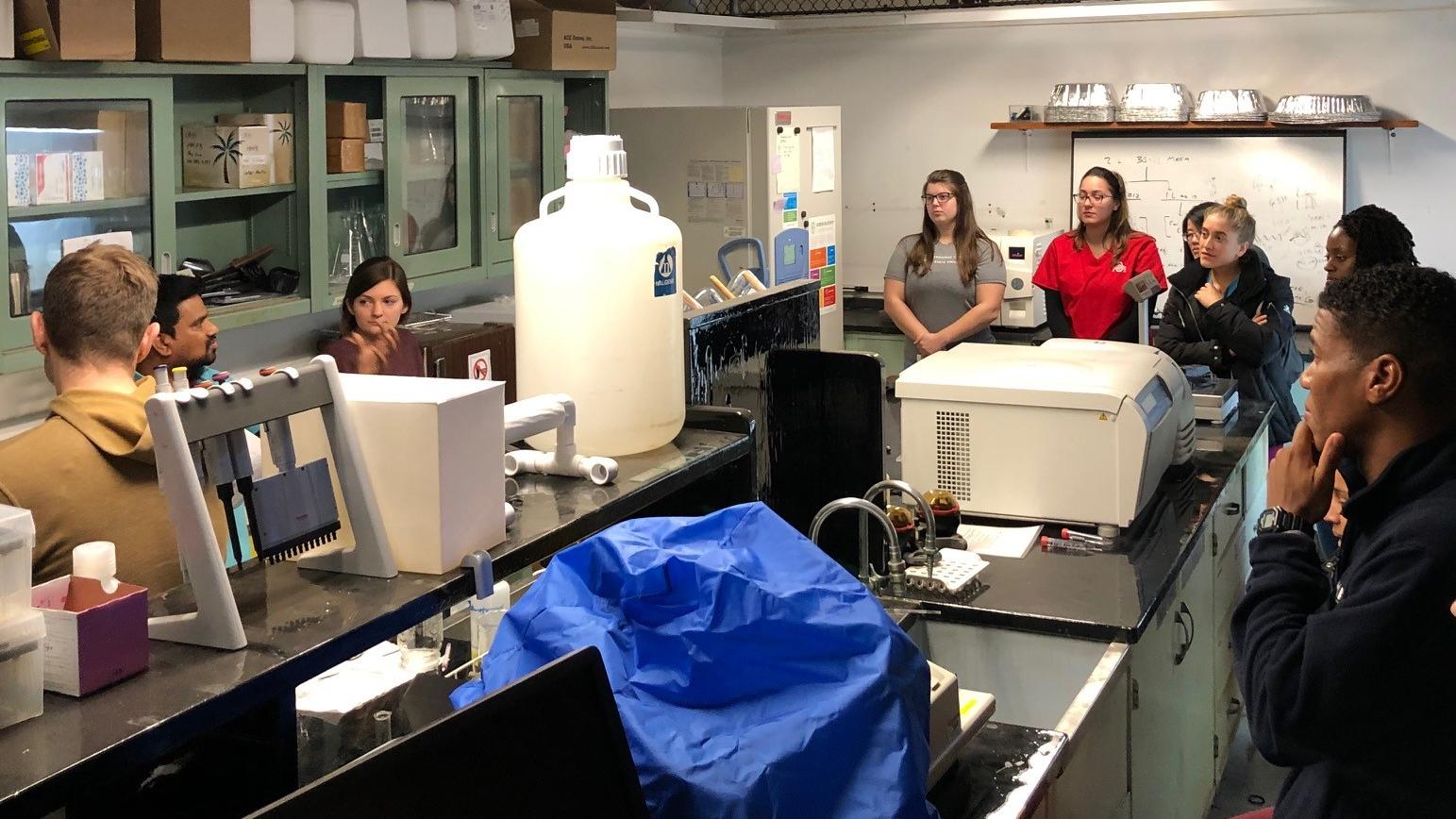
Mentorship
Many of our researchers mentor undergraduates, teaching them about research methodology and effective communication. Since many of us are women, we make a special effort to share our experiences with budding women scientists and we strongly encourage minorities and non-traditional scientists to get involved.

